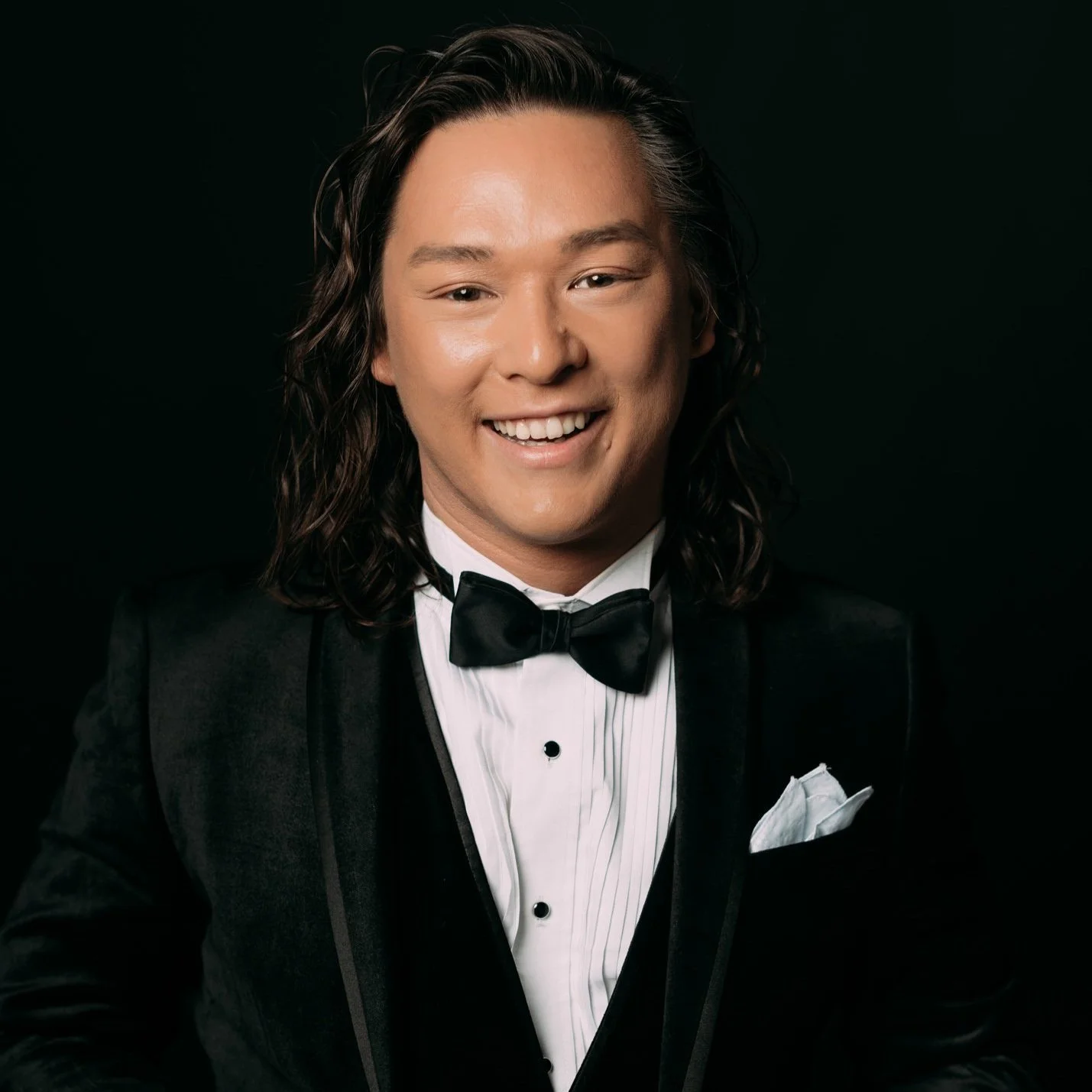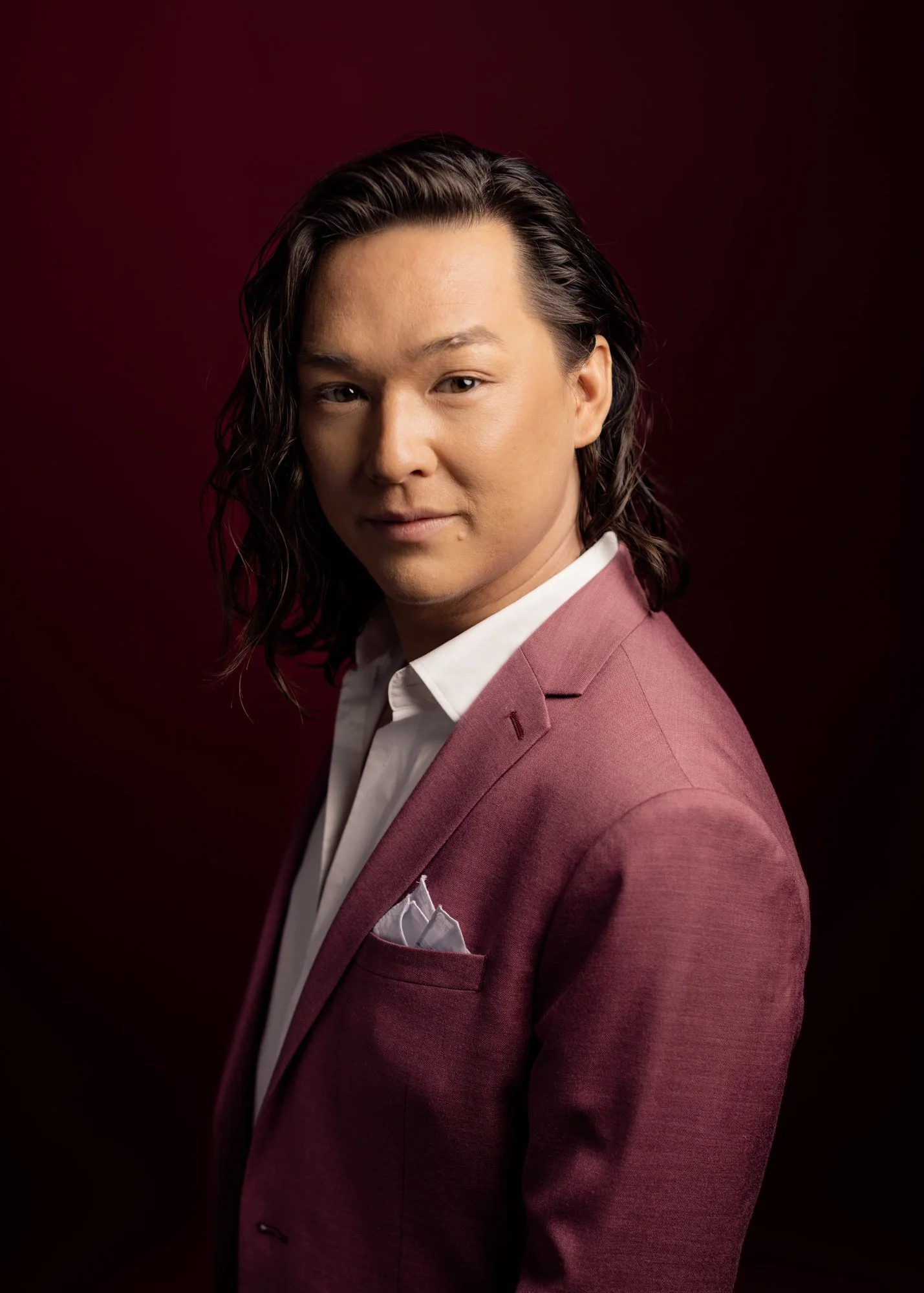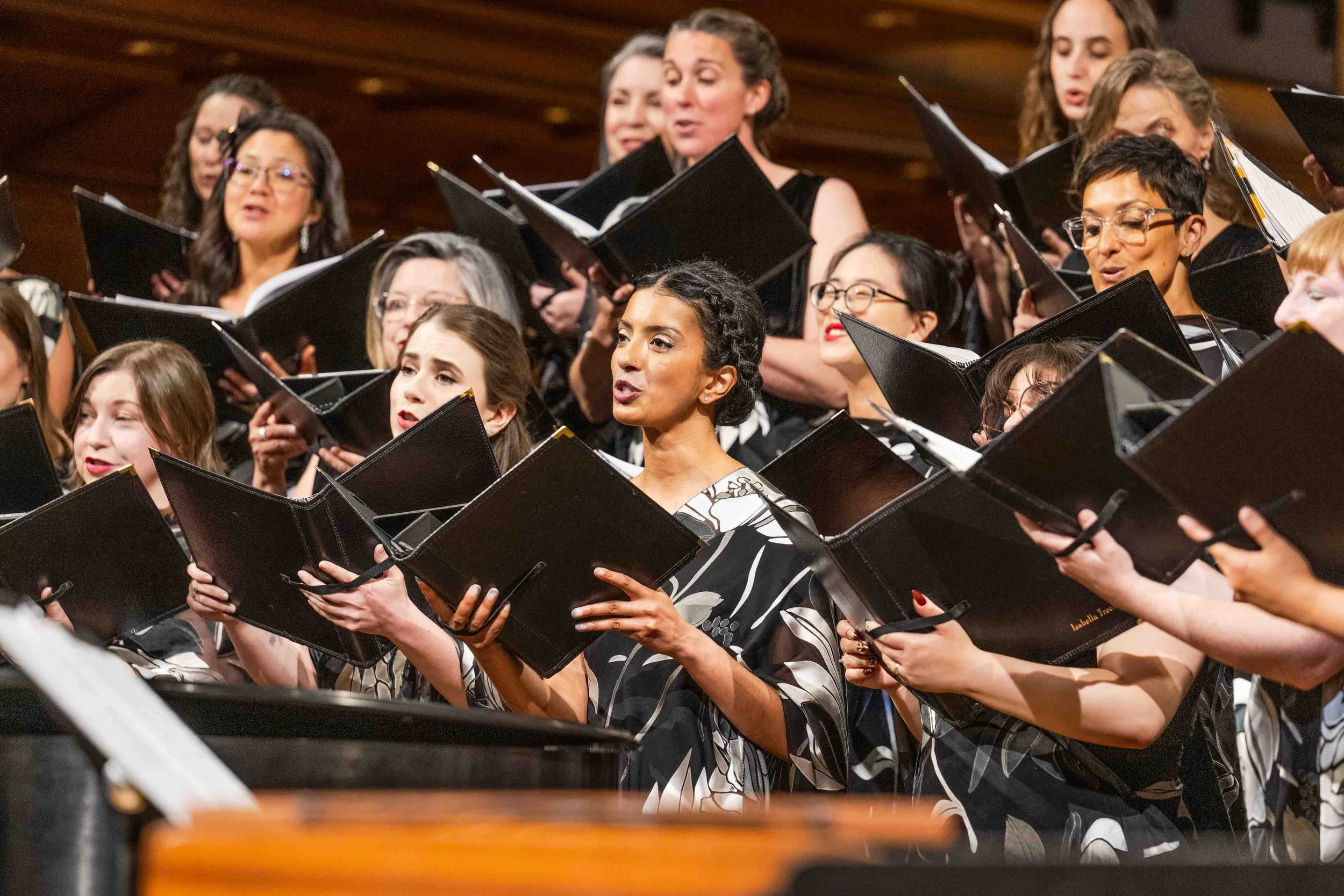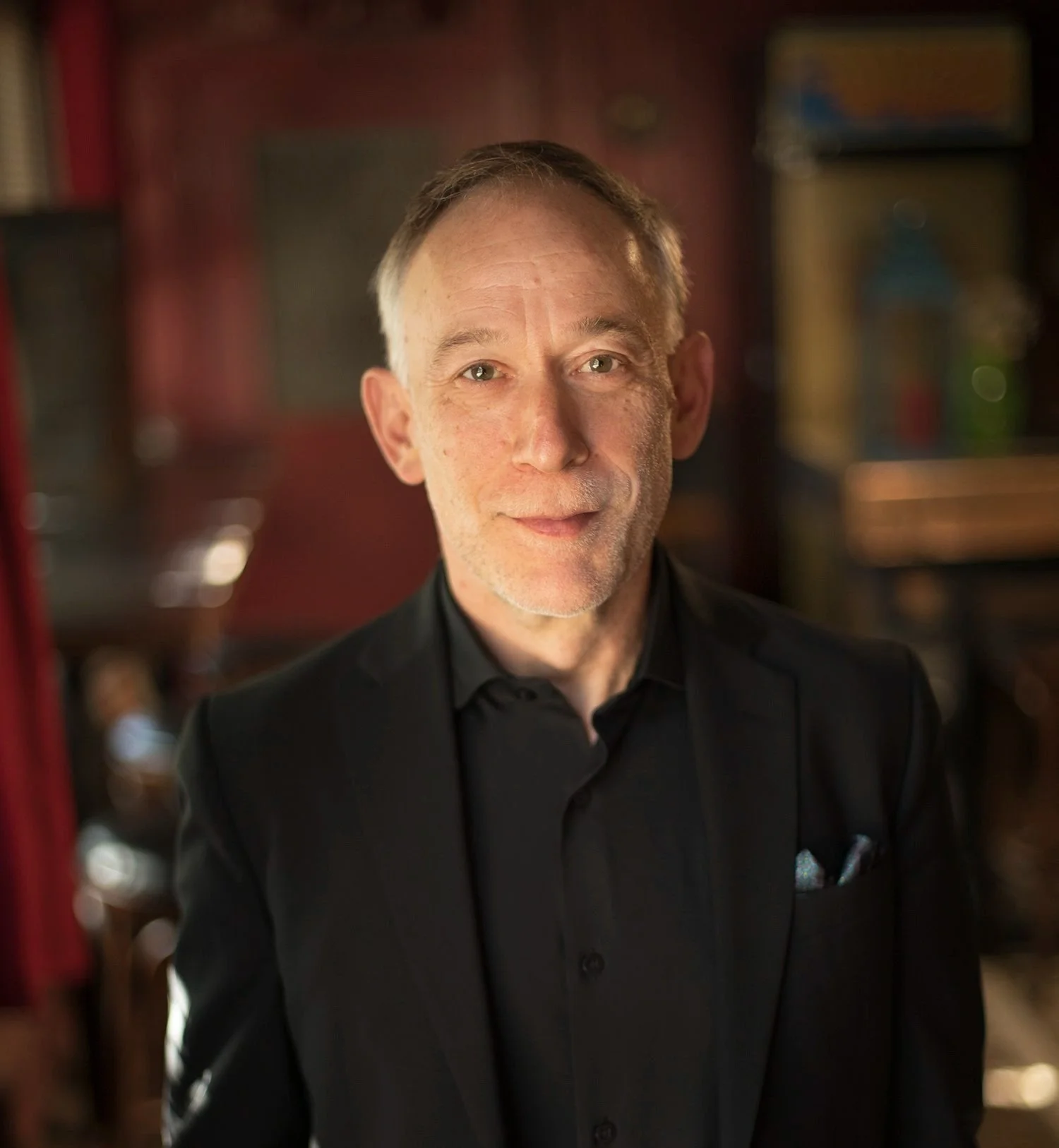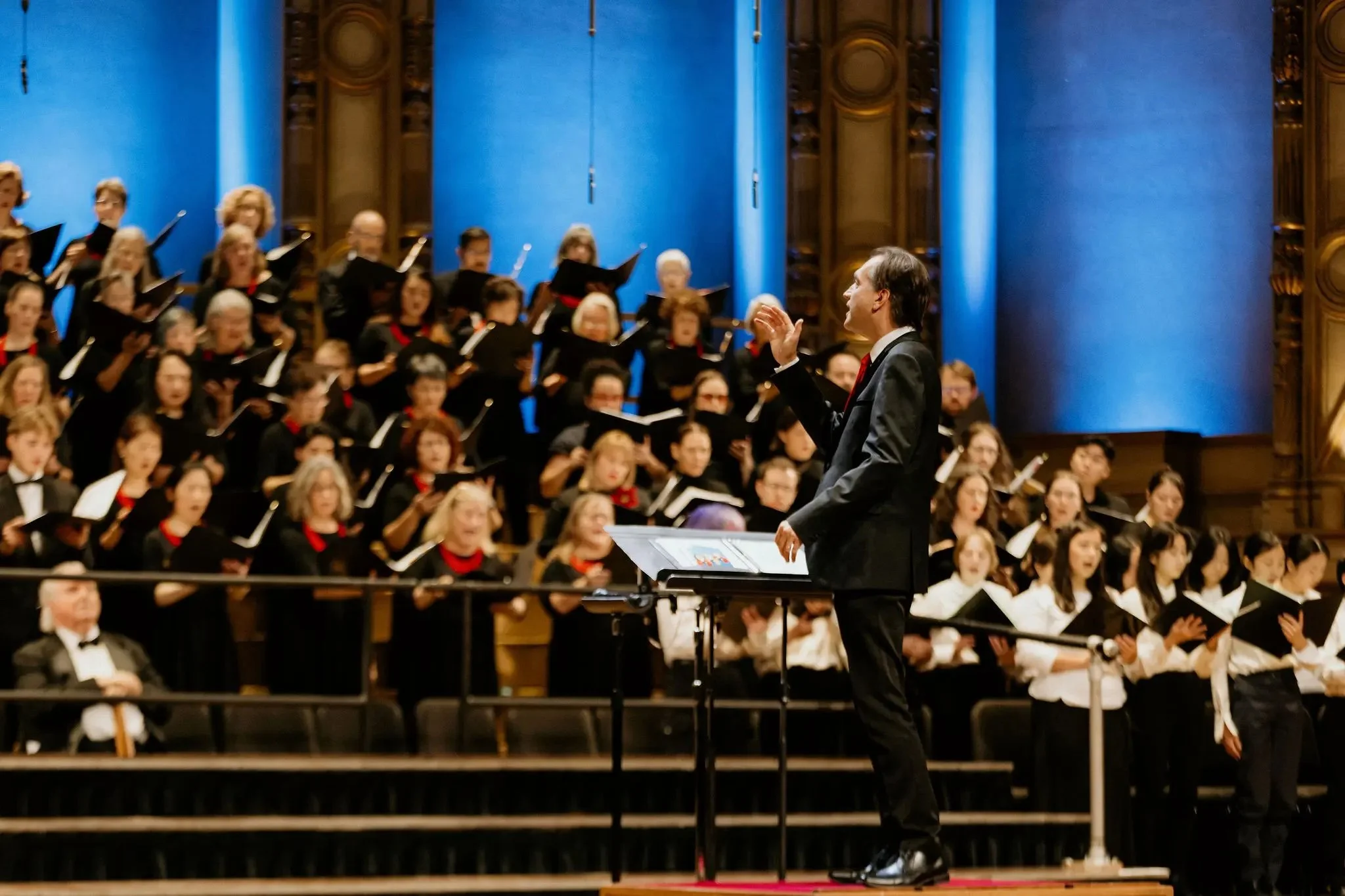A Midsummer Night's Dream's Spencer Britten forges a new path in opera
The rising tenor, a descendant of composer Benjamin Britten, has become a champion for diversity in the art form
Spencer Britten is moving opera forward, onstage, behind the scenes, and on social media. Photo by Jeremy Knowles
Vancouver Opera presents A Midsummer Night’s Dream at the Queen Elizabeth Theatre on February 11, 16, and 19
THE FIRST TIME Spencer Britten found out he was related to leading postwar English composer Benjamin Britten, the full significance of the news didn’t hit him.
As a kid, he knew Britten’s name from some of the Christmas carols he’d sung in the children’s and boys’ choirs he belonged to. Then, one day at his grandparents’ farmhouse in Abbotsford, his grandfather noticed a newspaper article mentioning Benjamin Britten, pulling out the family tree to see if the composer sat on it. And there he was, somewhere around a fifth cousin.
“My family was of course in awe, and me, being super young, I didn’t care so much—but then that memory stuck with me,” Spencer Britten tells Stir over Zoom. “Then later, I kind of just fell into opera. And so the more I got to know it, the more I found this connection so fascinating.”
Britten has gone on to forge a career in opera, notably breaking new ground as a Chinese-Canadian artist, singing for cutting-edge projects like Against the Grain Theatre’s acclaimed Messiah/Complex, and bringing the art form to the masses through cheeky social-media campaigns while at Staatsoper Berlin. This week, he’s also excited to star as Lysander in his first professional-stage production of Benjamin Britten’s A Midsummer Night’s Dream, with Vancouver Opera.
For the record, the fact that his ancestor wrote the multilayered, 20th-century music to adapt Shakespeare’s famous play about love, deception, magic, and fairies does not necessarily make singing it much easier.
“You really have to learn Britten’s language,” the affable artist explains. “I do a lot of contemporary music as well, and the trick about learning difficult scores is that you have to learn the language of the composer—because to the composer, of course, it all makes sense.
“It's about finding a way where we can stay in the scene,” he adds of himself and his cast members, “but kind of like still have our eye on the conductor, because we need his help to make it through the difficult sections.”
Song and dance
It’s been a long and not-quite-direct journey for the artist to this point.
Along with choir singing, Britten trained as a child at Port Moody’s Caulfield School of Dance. “Even though I did musicals and the kids’ chorus stuff, it never really occurred to me that I could combine singing and dancing at the same time,” he explains.
He got a taste of opera in 2005 with the VO in the children's chorus of Turandot. But it wasn't till later, in high school, that a voice teacher noticed his aptitude in the tenor range and started slipping arias and art songs into his repertoire. Britten jokes that she “tricked” him into opera. It stuck and he headed to UBC for music studies.
But his dance skills would come back to his advantage when he took a leap of faith at the end of his Master’s degree at UBC in 2018, when he hopped on a plane and auditioned for the Glimmerglass Festival in New York City.
“The musical they were doing that year was West Side Story,” he recounts. “So I was just like, ‘You know what? I don't know if that's where I'm at in my career, but I'm just gonna go for it.’ And after the dancing audition, they said, ‘You're an opera singer, but you obviously have dance training.’”
The next thing he knew, he was cast as a Jet in the hip, urban production, singing and dancing Jerome Robbins’ original choreography. “The first couple days of dancing, I thought my body was broken,” he recalls with a laugh. “I thought I’d never recover because it was so hard!”
He did, though, and his career was launched.
Spencer’s trajectory took him almost immediately to Europe, where he’s sung in storied venues from Royal Opera Versailles to Bregenzer Festspiele. From 2020 to 2022 he was a member of the International Opera Studio of the Staatsoper Unter den Linden, the state opera in Berlin, a city he still technically calls home.
That’s where Britten, one of a wave of young, rising opera stars to leverage social media, became a bit of a video star, posting cheeky guides to the art form for the Staatsoper. Called “Opera in a Nut Shell”, the series opens with a scene that perfectly captures both his virtuosity and his goofiness: Britten belts out an aria while smashing nuts with a rolling pin—then eats them with chopsticks. One lightning-speed recap of Don Giovanni finds Britten hamming it up as not just the titular lothario, but his mopey servant and weepy, blonde-wigged love interest Donna Anna.
Spencer Britten. Photo by Jeremy Knowles
“It’s ridiculous! But one of my goals with social media, back when I started taking it more seriously a few years ago, was that I wanted to demystify opera and make it more approachable for the non-operagoer,” Britten explains. “I mean, our reputation is that it’s so snooty and that it's so elite, and I just wanted to show that opera singers are just normal people. We just sing opera and we like hanging out with our coworkers and going for beers after work, and we like having fun.
“Going to the opera can be a normal thing, just like going to a concert, just in a different style. And doing this marketing job in the Staatsoper showed me that it was effective and inviting for people.”
But the pandemic slowed down Britten’s rise in traditional European opera, turning his attention back to the Canadian scene, where there were bold new works for diverse performers. Returning to his home country, Britten has become an activist for inclusion and diversity in opera.
“I would say for me, as an artist who is at the intersection of so many minorities, it's really difficult for me to find that one person who has the absolute power to give me that break,” he reflects. “I found in my career that there have been a few people here and there who have supported me and put me in a position where I'm able to show what I can do.”
That’s shifted upon his return here, especially with the critically acclaimed Messiah/Complex—the online, pandemic-era film that reinterpreted Handel’s Messiah to celebrate Canada’s diversity. As one of 12 multi-ethnic soloists, Britten made an impact showing his Pride, performing a soaring “Ev’ry Valley” from Davie Village, strolling the sidewalk in high heels.
The 2022-23 season has seen him take the role of Chung Saihin in the world premiere of Alice Ping Yee Ho’s new Chinatown, and a part in Opera Atelier’s Dido and Aeneas.
“I think North America is moving much quicker than a lot of Europe is, just because the traditions in Europe run so much deeper,” Britten observes. “I’ve been drawn to these projects that have allowed me to express myself in my authenticity, whether that's onstage, offstage, or working in the room or as a character. So my viewpoint switched from ‘I need to sing the biggest houses in the world’ to ‘I want to sing works and be in environments that really serve me as an artist.’”
That activism has spread to his social-media posts back here in Canada, as well. After Messiah/Complex, people started reaching out to Spencer—especially young singers of Asian and mixed-Asian backgrounds— commenting on how inspiring it was to see someone who looked like them singing opera.
“That was a big eye-opener for me, and now that I'm getting a little older and further into my career, the videos I'm making on Instagram are calling out the toxicity of the industry,” Britten says. “And I didn't realize how much that impacted young singers who just kind of are told to accept that that's the way the industry is. Again, as a person who feels like they're on the forefront of opera changing, I feel like it's my responsibility to call these things out and to make sure that it's not happening in my presence. That's the only way that opera is going to move forward.”
Dreams, real and imagined
Of course, back on the Midsummer Night’s Dream stage, Britten is also moving opera forward. He loves the sense of magic in the piece, which hones closely to Shakespeare’s original—and the sense that anything is possible amid its swirl of magic potions, love triangles, and mistaken identities.
He’s enjoyed exploring the character of Lysander, who falls under a spell that transfers his love from Hermia to Helena. “He's kind of questioning himself and who he is and what he wants in life and what he wants out of this relationship,” Britten observes.
Britten is equally jazzed about his costume, which he says was directly influenced by Prince’s outsized looks. “And there's definitely some Vancouver-inspired costumes for some of the characters,” he hints. “So it's not only going to be super magical with the set and the projections and everything they're using, but it's going to be super relatable for Vancouver audiences too.”
As for his fifth cousin’s music, Britten is only just getting started embracing the atmospheric textures and strange, haunting scales of a composer who was also committed to moving the art form forward.
“I'm just hopeful that I could just sing more of his work in the future, like The Turn of the Screw; Albert Herring would be a dream,” he says. “And he has a serenade for French horn, tenor, and strings—I'm dying to sing that in concert as well. He has so many great concert works too. So I'm just hoping there's lots of Britten in the future for me.”


